Since the war between Israel and Hamas began, hundreds of thousands of people have protested in support of Palestinians and against Israel in cities around the world, chanting slogans such as “Free Palestine!” and “globalize the Intifada!”
The slogans at these protests have stirred controversy, in some cases even prompting the opening of criminal investigations. Let’s unpack why these slogans are so controversial and what they really mean.
1. “From the river to the sea, Palestine will be free”
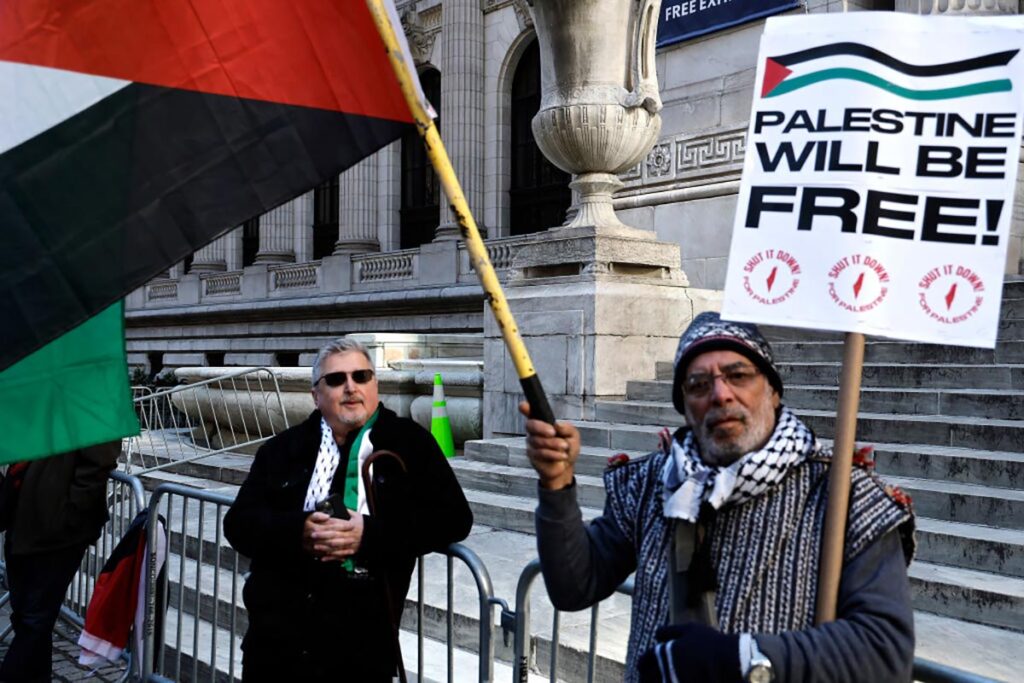
“From the river to the sea, Palestine will be free” is one of the oldest and most common chants heard at pro-Palestine protests today.
The slogan first appeared in the 1960s with the Palestine Liberation Organization (PLO), a militant group formed by Palestinians aimed at destroying Israel and replacing it with a Palestinian state.
What would happen to the Jews living there under such a scenario? At best, they would be second-class citizens, and at worst, they could face expulsion or violence.
The controversy around the slogan centers on the meaning of the word “free” and the geography of the specific river and sea that it references.
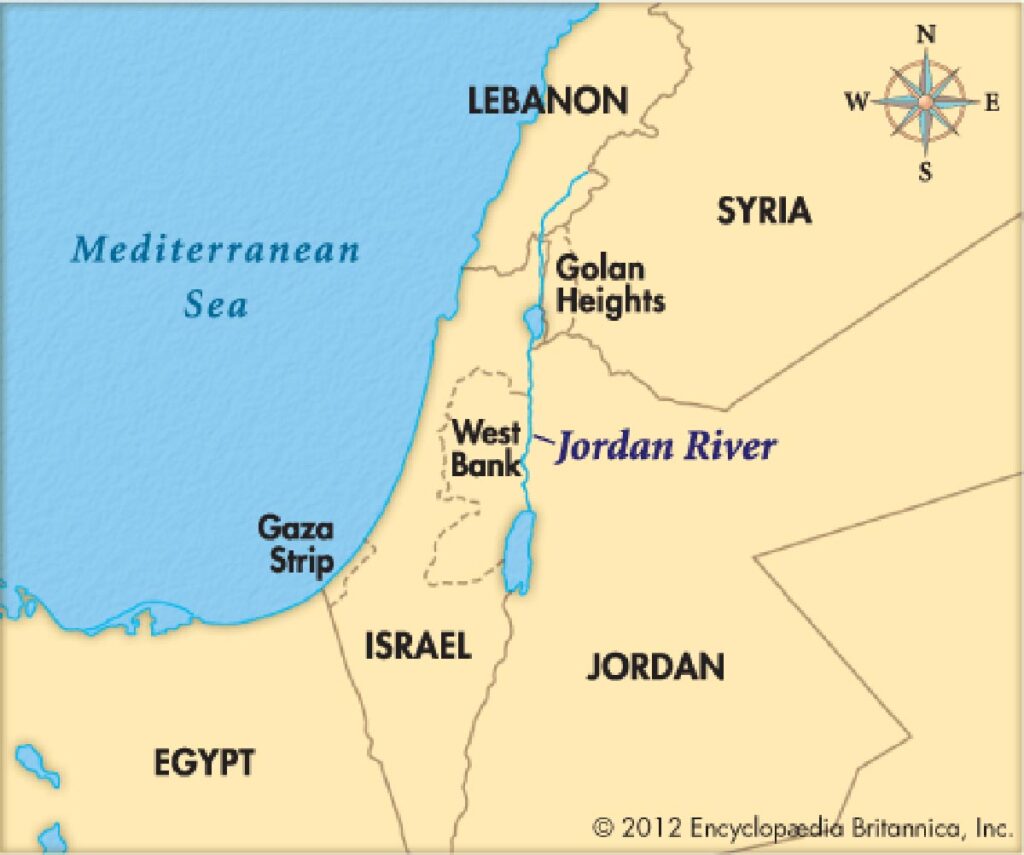
Videos have gone viral on social media of protesters being asked, “from what river to what sea?” The protesters gave all sorts of answers, ranging from the Nile to the Caribbean and even “why does it matter?”
A recent survey showed that more than half of the college students who said they supported the slogan couldn’t name the river and sea it refers to (the Mediterranean Sea and the Jordan River).
While the West Bank and Gaza are between those two bodies of water, so is the entirety of Israel.
The question becomes what it means to “free” this entire area, which is now the State of Israel and the Palestinian territories.
Some pro-Palestinian activists including U.S. House Rep. Rashida Tlaib argue that the slogan isn’t actually calling for the destruction of Israel and instead is simply calling for equal rights for everyone.
From the river to the sea is an aspirational call for freedom, human rights, and peaceful coexistence, not death, destruction, or hate. My work and advocacy is always centered in justice and dignity for all people no matter faith or ethnicity.
— Rashida Tlaib (@RashidaTlaib) November 3, 2023
However, many understand it to be calling for the erasure of Israel, as the PLO’s original version signified.
On October 7, Hamas started out at the sea and broke out toward the river. On the way, they committed gang rape, chopped heads off, and burned whole families alive. So when people chant "from the river the sea," we know exactly what that would look like.
— Eylon Levy (@EylonALevy) February 25, 2024
In Arabic, an even more problematic phrasing is often used: “Min almiat lilmayat Filastin earabia,” meaning, “From the water to the water, Palestine will be Arab” (the two mentions of water refer to the Mediterranean and the Jordan River). Another version replaces the word “Arab” with “Muslim.”
@adielofisrael They’re lying to you and youre eating it up. #israel #palestine #fyp
♬ Paris – Else
In its “rally toolkit,” the pro-Palestinian group “In Our Lifetime,” a central organizer of many of the protests in the U.S., recommends this Arabic version to protesters, along with several other slogans calling for the complete destruction of the State of Israel and any Jews living there.
For a deeper dive, watch our video: “What does ‘from the river to the sea’ really mean?”
2. “With our soul and our blood, we will redeem you, O Palestine”
“In Our Lifetime’s” rally toolkit mentioned above includes several recommended slogans for pro-Palestinian rallies.
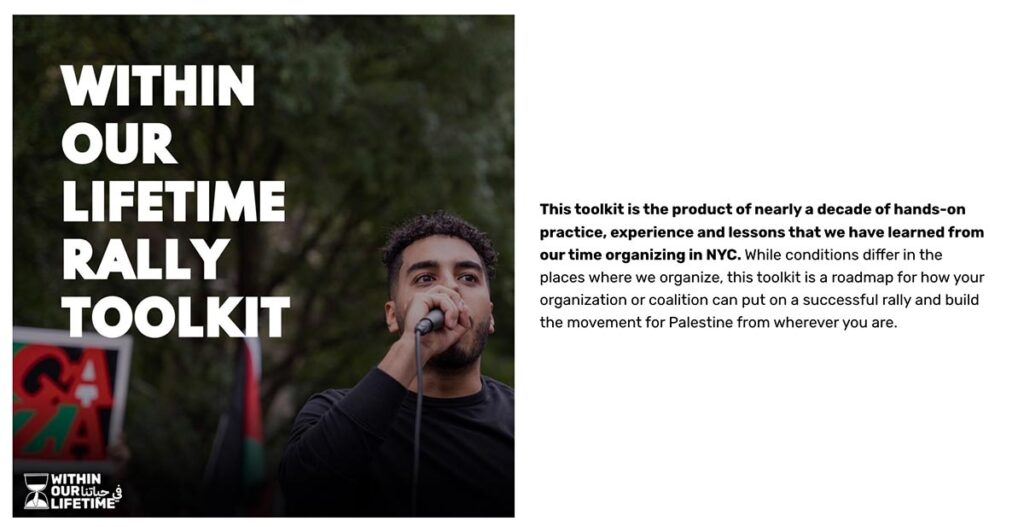
While most of the slogans are in English, there are a few in Arabic with English translations. Then, there is this one which is written in Arabic but isn’t accompanied by the English:
لا اله الا الله والشهيد حبيب الله
قولو الله وعلو الصوت يا نحررها يا بنموت
بالروح بالدم نفديك يا فلسطين
What that translates to is: “There is no god but Allah, and the martyr is the beloved of god. Say, ‘Allah’ and raise your voice, we will free her, or we will die. With our soul and our blood, we will redeem you, O Palestine.”
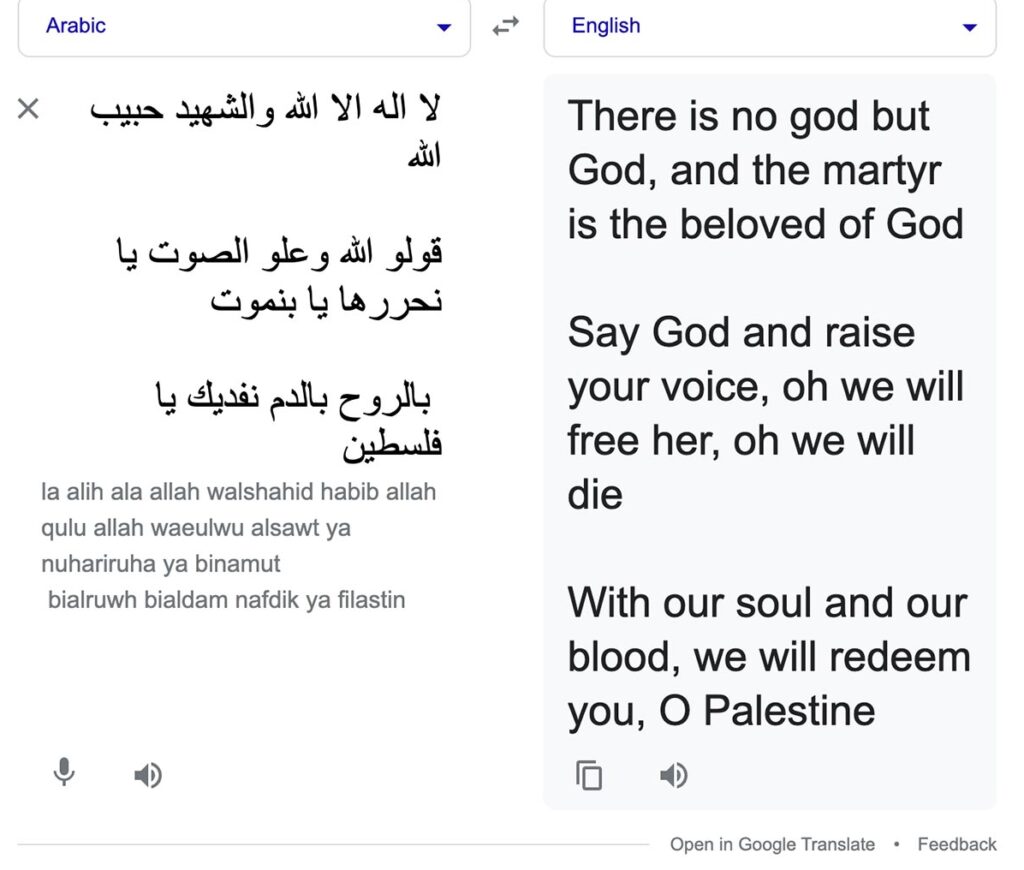
That last phrase, “With our soul and our blood, we will redeem you, O Palestine,” is extremely common in marches organized by terrorist groups in Gaza and the West Bank, where it’s used as a battle cry.
There’s not really a non-violent interpretation of this particular slogan. It’s a call for violence, pure and simple. It focuses on the glorification of death, a central tenet of Palestinian terror groups. In slogans like these, violent and deadly attacks against Israelis are presented as religious acts and an attempt to “free Palestine.”
3. “Free Palestine”
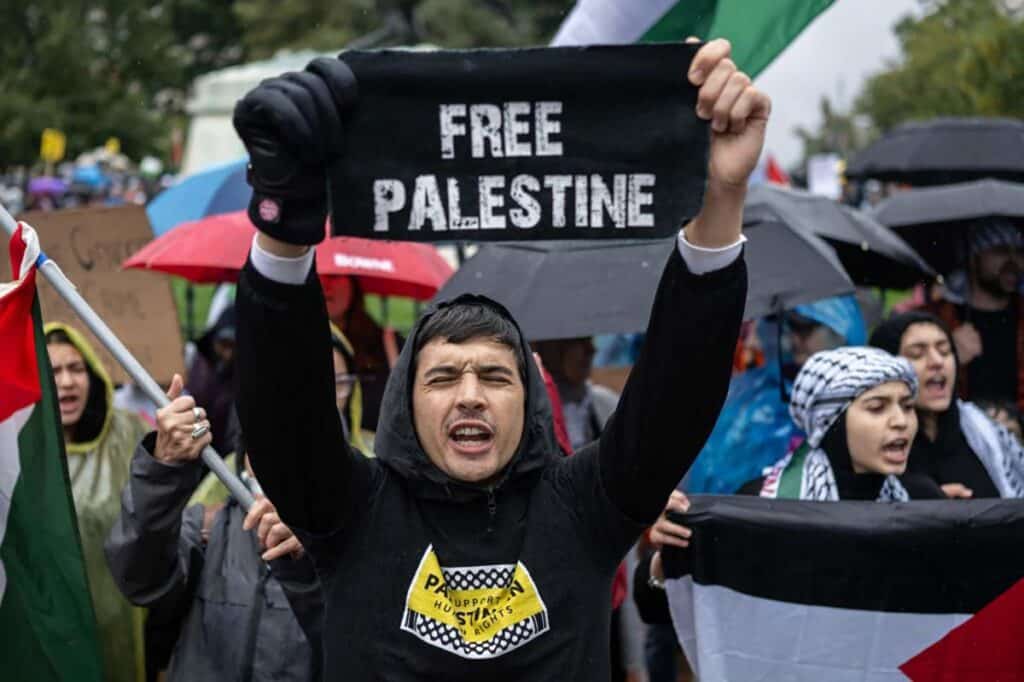
“Free Palestine” is probably the chant you’ll hear most at pro-Palestinian protests. You’ll see it on dozens of signs, sometimes mixed in with other slogans, but when you ask what it means, you’ll get a lot of different answers.
For one, it depends on the meaning of the word “Palestine.”
Historically, Palestine refers to Israel, the Palestinian territories, and their neighbor, Jordan, where 50-60% of the population is Palestinian. But, Jordan isn’t really on board with that definition.
For Palestinians, Palestine refers to the land between the river and the sea, which again includes the State of Israel.
It also depends on the meaning of “free.” Unlike the last slogan, where “free” is a stand-in for “Arab” or “Muslim” in the Arabic translation, there is no popular Arabic version of this slogan.
Some say “free” is simply a call for human rights for Palestinians. Others say it’s a call for the end of the military occupation of the West Bank and Gaza. But there are also some protesters who use it to mean the complete end of the State of Israel and the establishment of a Palestinian state in its place.
There’s really no way to know what someone means when they’re saying this. Chances are many of the people chanting it don’t even know what exactly they mean. Its vague nature is probably what makes it such a popular slogan.
4. “Settlers, settlers go back home! Palestine is our home!”
We’ve already unpacked the word “Palestine.” What about “settlers”? In one sense, it refers to Jews who built communities in the West Bank after Israel conquered the territory in 1967.
However, this slogan also invokes the notion of “settler colonizers,” a reference to the time when European empires sent Europeans to far-flung lands to build colonies and settle there. The colonialists were there to control local resources, a process that involved marginalizing the indigenous population.
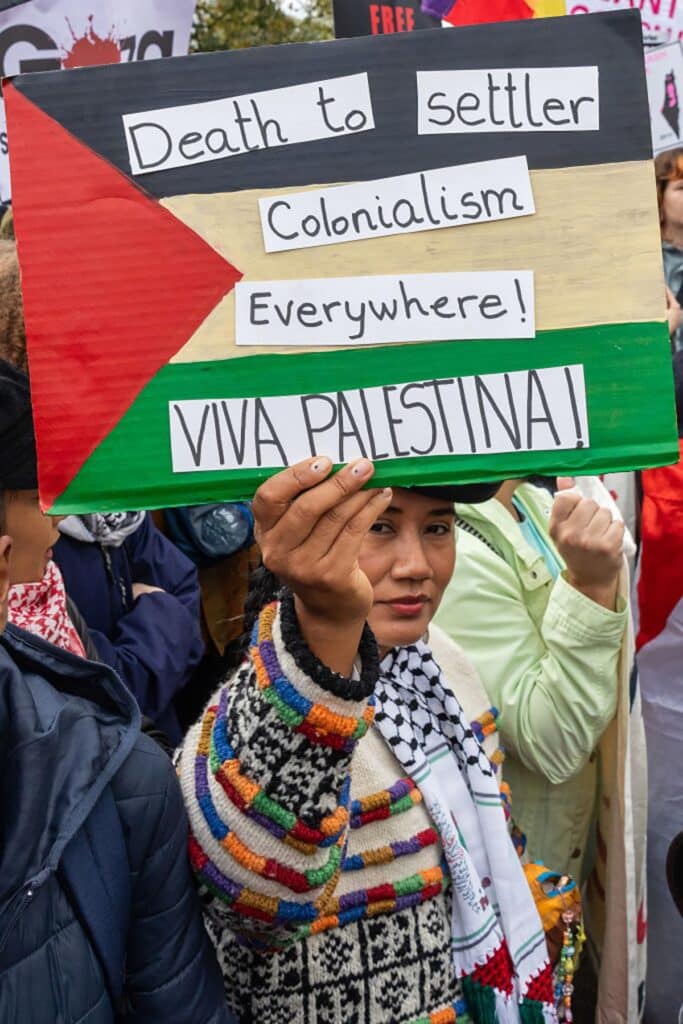
From this context, this slogan implies that Jews in the Holy Land are settlers or “colonialists” from Europe, their actual “home.”
The slogan denies that Jews have any historical ties to the Land of Israel and instead, suggests that they “stole” the land from the Palestinians.
The reality is that there is an ancient Jewish history in the Land of Israel and there is a well-documented consistent presence of Jews in the area dating back thousands of years.
This bond is not solely historical; it’s deeply embedded in Jewish culture, literature and religion. Jerusalem is mentioned over 600 times in the Hebrew Bible, and is a focal point of daily and holiday prayers.
The Jewish traditions and holidays are intimately tied to the land’s agricultural cycles, reflecting a profound bond with their ancestral homeland.
In fact, Jews have been longing to return to their ancient homeland since an actual group of European colonizers — the Roman Empire — kicked them out 2,000 years ago.
But even putting all of that aside, slogans that cast Israelis as white colonizers ignore that over 50% of Israeli Jews have origins that are not from Europe, including Mizrahi, Yemenite, Indian and Ethiopian Jews.
The great irony of this slogan is its similarity to the most common slogan today among Israel supporters: “Bring them home!” A chant demanding the return of the over 250 hostages taken during the Oct. 7 massacre and the 134 that are still held by Hamas.
5. “There is only one solution, intifada revolution”
For this one, we won’t go into the inherent discomfort many Jews feel with the word “solution.” So, what does “intifada” mean? The simple translation is “uprising,” but it’s more complex than that.
“There is only one Solution – Intifada. Revolution.” Remind my again why these are not hate marches? https://t.co/fWF04YpukJ
— Douglas Murray (@DouglasKMurray) November 4, 2023
More specifically, “intifada” refers to two events from the recent past: the First and Second Intifadas.
The First Intifada from 1987 to 1993 was a wave of violent demonstrations and attacks by Palestinians on Israeli soldiers and civilians, with Molotov cocktails and grenades.
The Second Intifada from 2000 to 2005 was a massive wave of shooting and suicide bombing attacks targeting Israeli soldiers and civilians. The attacks targeted everything from cafes to buses to Passover seders. Over 1,000 Israelis and 3,000 Palestinians were killed in the Second Intifada.
While some may use the word “uprising” to refer to large protests or similar acts of civil disobedience, many Jews and Israelis hear it differently given the historical context. For them, calls for an “intifada” evoke the mass murder of men, women, and children through shootings and suicide bombings.
For many Palestinians, the word intifada speaks to a sense of hopelessness and rage and recalls a time when Palestinians violently revolted.
The slogan also ties the intifada with “revolution,” and labels that the “only solution.” This suggests that there is no room for non-violence, negotiations, understanding or respect, and that the only solution is an intifada.
6. “We don’t want no two-state, we want ’48”
This is one of the few slogans that doesn’t leave a lot to the imagination. “We don’t want no two-state” refers to the peace process which envisions a Jewish state and an Arab state living side-by-side.
Meanwhile, “we want ‘48” refers to the time before the State of Israel was established in May 1948. The slogan envisions a Middle East with no State of Israel whatsoever.
It also implies that returning to a time before the State of Israel would mean returning to a time when the state of Palestine existed.
However, if the protesters chanting this slogan were to time travel back to 1948, they wouldn’t find a state of Palestine, but rather the British Mandate of Palestine, a colonialist entity that the Jews of Palestine fought to remove.
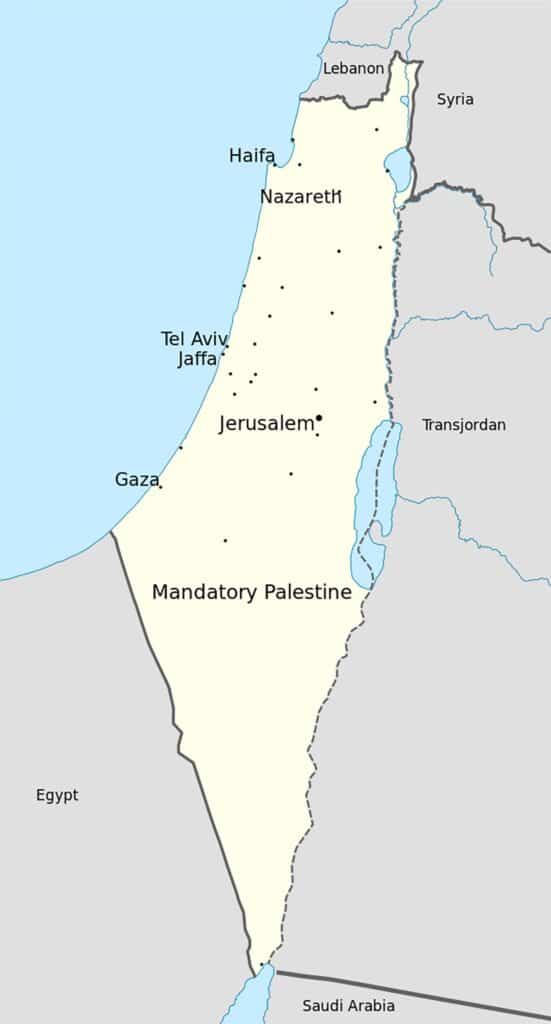
Before the period of British rule, there was also no State of Palestine but rather an area known as Southern Syria, a province in the 400 years of the Ottoman Empire.
In fact, as these protesters travel back in time in search of a long-standing, independent state in this land, free from the clutches of a larger empire, they’re pretty much stuck going back all of 2,000 years, to the Kingdom of Judea, just before Roman European colonizers took over and renamed it Palestina.
